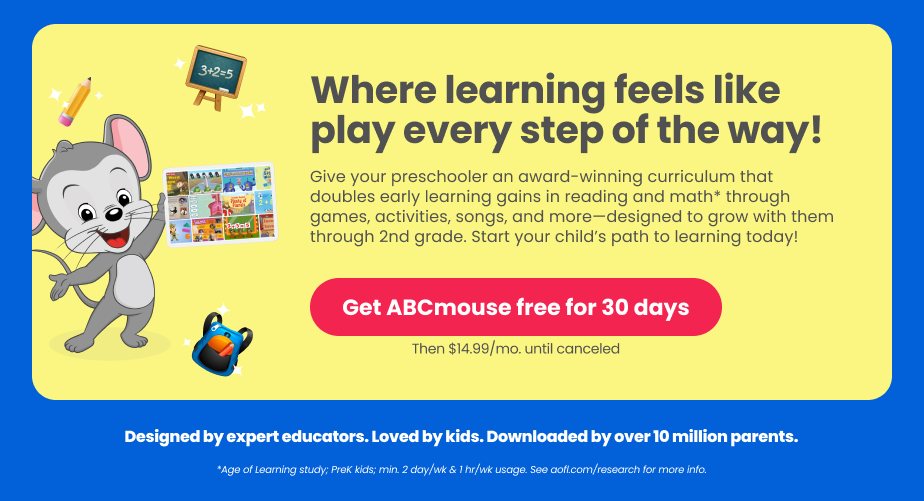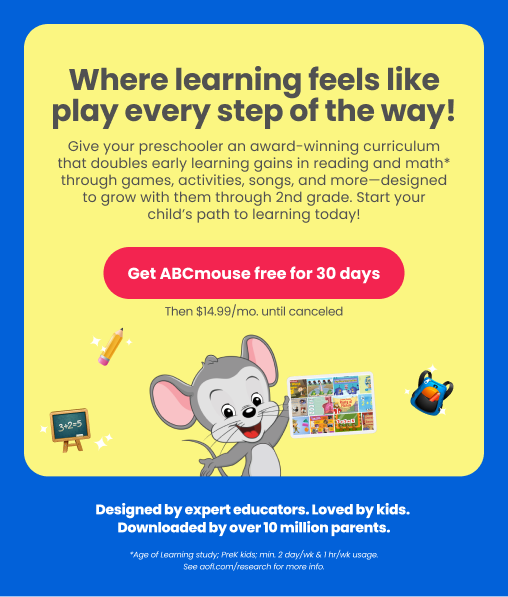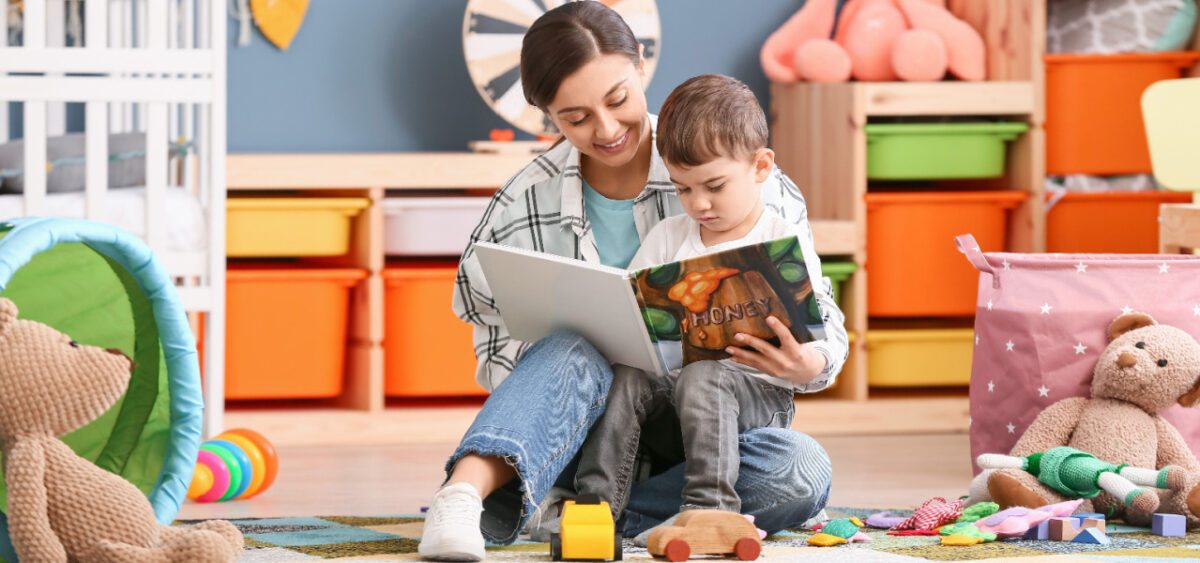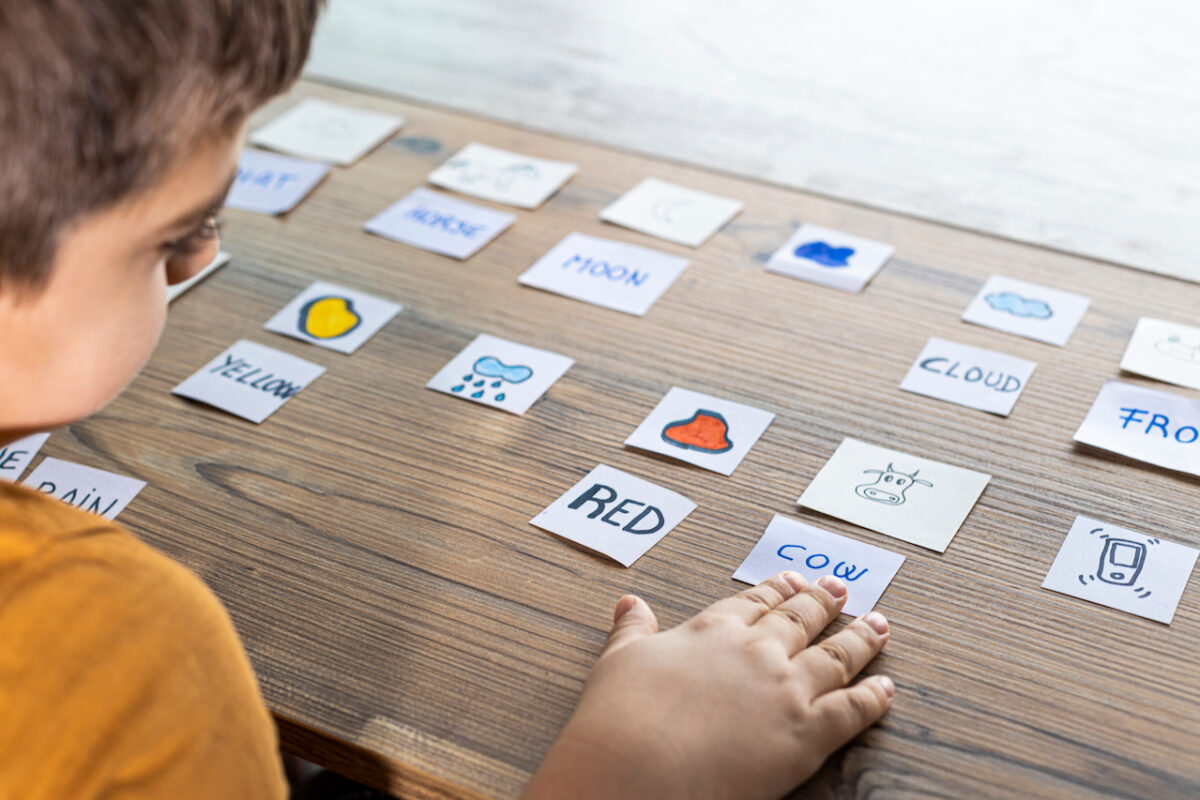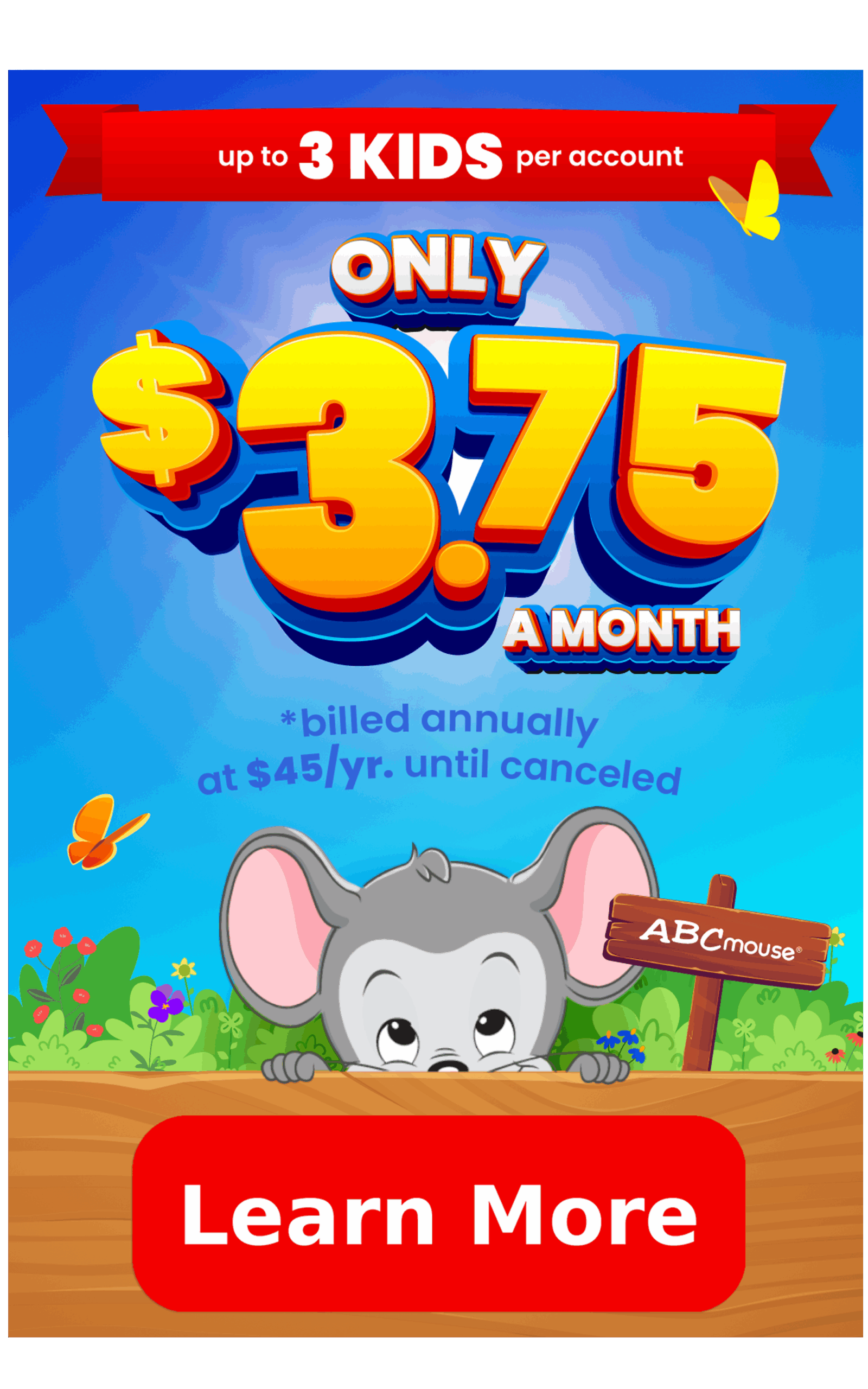
What Age Should Kids Start Preschool?
Plus 4 Other Questions to Check Your Child’s Preschool Readiness
Preschool can cover a wide range of ages and learning readiness, often leaving parents confused about what skills their children should have before starting preschool. As is the case with many age-based questions, there is no one-age-fits-all answer. What works for one child or family situation might not work for another.
The ABCmouse Preschool Learning Program provides a structured and engaging way for young learners to develop key skills before starting preschool.
Let’s explore the typical age for preschool and what to look for in your child to determine if they might be ready for preschool.

When Do Kids Typically Start Preschool?
Most children will start a preschool program at the age of 3 or 4, as this is the age when many public schools offer preschool or Head Start programs. However, these aren’t the only options. There are many programs to choose from, especially in the private sector, and you may find formal preschool programs that start as young as 2.
The bottom line is that there is no right or wrong answer to this question. It’s much more important to know where your child is at from a developmental perspective when deciding if they’re ready for preschool.
Preschool Readiness Checklist
Below, you’ll find a general checklist for preschool readiness. As you read it, remember that each child develops at their own pace, and it’s normal for children to not meet all of these criteria immediately.
| Social Skills ✓ Can your child play well with others? ✓ Does your child share and take turns? ✓ Can your child communicate their needs effectively? ✓ Can your child follow basic rules? | Emotional Skills ✓ Can your child separate from their parents without becoming overly upset? ✓ Can your child manage their emotions appropriately for their age? ✓ Is your child able to focus on a task for a period of time? | Physical Skills ✓ Can your child manage bathroom needs independently? ✓ Can your child eat a snack or meal independently? ✓ Can your child put on and take off their shoes and jacket? |
| Cognitive Skills ✓ Does your child recognize some or all letters of the alphabet? ✓ Can your child recognize their written name? ✓ Can your child count to at least 10? ✓ Does your child recognize basic shapes and colors? | Fine Motor Skills ✓ Can your child hold and use scissors? ✓ Can your child hold a crayon or pencil correctly? ✓ Can your child complete a simple puzzle? | Language Skills ✓ Can your child express themselves using complete sentences? ✓ Can your child follow simple two-step instructions? ✓ Can your child understand simple stories read to them? |
This checklist can serve as a guide, but keep in mind that some kids may excel in some areas while needing more help in others. The goal of preschool is to help children grow and learn, so don’t worry if your child hasn’t mastered all these skills before they start.
Preschool Readiness Q&A
Here are some Q&As to help you decide what age kids should start preschool and to help you determine your child’s preschool readiness.
Is my child’s language ready for preschool?
When checking for this, there are a few things you can watch for. Keep in mind, this is not a comprehensive list but rather a few examples to help guide you in your decision making. As you work on language skills with your child, try exposing them to as many words as possible, either through conversations or reading aloud. You can also use our Preschool Vocabulary List as a resource.

Language skills to look for in your child:
- Does your child understand words for some colors like red and green?
- Does your child understand the meaning of words like family, outside, and square?
- Can most people understand what your child is trying to say?
- Can your child speak in short sentences?
Is my child’s literacy ready for preschool?
At the preschool age, literacy skills focus more on letter recognition and eventually word recognition. Your child does not need to know their letters yet–this is something they will work on in preschool.

You can do a couple of things to encourage children to observe the letters around them. Actively pay attention with your child to signs, packages, and labels to look for specific letters or words. Reading daily can also help, as well as exposing your child to a variety of books. You can also try these fun preschool reading activities.
What other skills does my child need for preschool?
When considering if your child is ready for preschool, consider their ability to self-regulate their emotions and spend time with other children. Often, schools or preschool programs will provide a readiness checklist so you know whether they are ready.
It might include things like:
- Child can go to the bathroom on their own
- Child can listen to directions
- Child can communicate their needs

If you don’t feel as though they are ready, identify the areas they need to work on or talk to your pediatrician. Then look for opportunities to practice these skills at home, with family and friends, or when you and your child are out and about.
Am I emotionally ready for my child to start preschool?
This is a question many parents can relate to, especially those who are watching a child head to preschool for the first time. Just as much as children need to prepare for preschool, parents need to get ready for this adjustment, too. It can be a challenging and emotional time.
Try talking with friends and family or other parents who are preparing to send children to preschool. You can also find online parenting groups that can help, too.
5 Ways to Help Your Child Get Preschool Ready
| You Want To: | Try Saying: | |
|---|---|---|
| 1 | Help your child associate meaning with words by pointing out labels around your house. | “Let’s look at the cereal box.” |
| 2 | Make predictions with your child, which will help them figure out how to adjust their own predictions as they learn and explore. | “Will this cup sink or float?” |
| 3 | Show your kids it’s okay to ask for help, even teaching them to use a phrase before you step in to assist. | “Can you say ‘Help me please?’” |
| 4 | Model staying calm even when your child is frustrated. | In a calm voice, “I see you are upset.” |
| 5 | Let your child know it’s okay to ask grown-ups for help. | “How can I help?” or “What do you need?” |
The tips above include resources from our Preschool Readiness YouTube video. Watch the video in full here.
ABCmouse’s expert advice review process:
Our team of ABCmouse Curriculum Experts, made up of talented professionals in early childhood education and development, take a close look at educational content and learning claims. They put in the effort to make sure our information is accurate and current. We have a certified educator or another respected authority review the content, matching their expertise with the topic at hand. They’ll make sure the content is thorough and follows the latest research and educational guidelines. If they think we can make things even better, they’ll chat with our editorial team, and we’ll make those improvements right away. Only after a reviewer gives their thumbs-up does a piece of content get the official stamp of approval in the byline.


